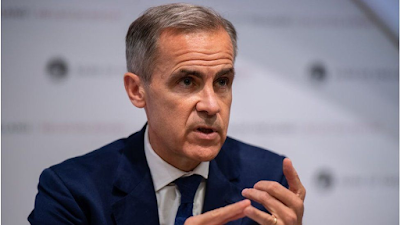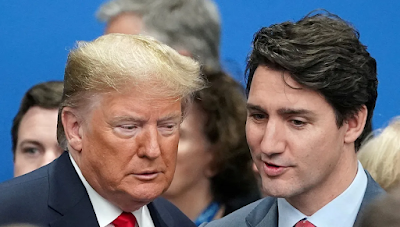 |
| The sinister Christian women of the Deep South |
In a recent poetry group, one participant composed a poem ending with a wish that “deep South evangelicals” would “pray for forgiveness for their myriad sins and continual hypocrisy.”
I felt obliged to send her a private note pointing out that this is hate speech. Something published, outside private conversation, that could promote hatred of an identifiable group. Would it sound all right if it read:
“I hope the Jews will pray for forgiveness for their myriad sins and continual hypocrisy.”?
“I hope the Muslims will pray for forgiveness for their myriad sins and continual hypocrisy.”
Or substitute Buddhists, or Hindus, or followers of “aboriginal spirituality.”
It would be acceptable, true, if written by an evangelical from the Deep South about evangelicals from the Deep South; Christians are good at accusing themselves. But this poet was a Canadian secularist.
I warned her she could conceivably get herself in legal trouble here. And it is worth remembering that anything you put out on the Internet is forever. The political climate can change, and things that are socially acceptable now may not be in the future. What you say now can and may be used against you.
It is unfortunately currently socially acceptable in Canada to express hatred towards Americans, people from the “Deep South,” and evangelical Christians. She managed to hit all three. That does not make it right. It was similarly socially acceptable to hate Jews in Hitler’s Germany.
Not that I believe there should be “hate laws”; but hate speech is nevertheless an ill thing.
This was her response:
“Yes, I'm aware, and I specifically said "deep south" and not all Evangelicals. And since the re-election of the felon, I am so angry that I don't even care what people think about that. The religious right in the deep south have been planning Project2025 for years, just waiting for the right guy to help them achieve it. Transactional Trump gave them what they wanted, including on SCOTUS, in exchange for votes - and now many millions are and will suffer because of it: the LGBTQ, women in general, pregnant women with complications and will die (and already have), legal immigrants to the US - yes, I've read from credible sources that even legalized citizens from South America have been getting their papers ripped up and they're carted out of the country like criminals ... by the biggest crooks are in the WH, who released the Capital Hill criminals who killed police officers and security personnel - here he is, carting out Venezuelens, many of whom are hard-working, tax-paying folks who lived in the US for many years.
“I could go on, but I won't. … I appreciate your advice. I am just too mad right now to be sorry about my activist poetry.
“So, yes, although I have always been against hate speech, I find myself hating the religious right of the US south. But my poem pales in comparison to much that comes out of the felon's mouth.”
Let’s take a closer look.
To begin with, this, surely, is a perfect example of just what she accused the evangelicals of: hypocrisy. She is opposed to “hate speech,” but she has a right to it, because she is angry. Assuming she also shares the view on the left that hurting someone’s feelings is a serious crime, here she nevertheless reserves the right to herself to say what she likes, and “not even care what people think about that.”
She thinks her criticisms are fair, because she said “Deep South,” not all evangelicals. Yet “Deep South evangelicals” is just as much an identifiable group as “evangelicals.” I wonder if she actually has no concept of individuality or individual responsibility. So she has no concept of why racism or prejudice is wrong. This seems possible on the modern left.
“The religious right in the deep south have been planning Project2025 for years.”
Project 2025 itself claims it is a “broad coalition of over 100 conservative organizations.” Not just the “religious right,” then. Its primary sponsor is the Heritage Foundation in Washington D.C. Not the Deep South. Of course, they might be lying. These could all be front organizations. We could get into conspiracy theories here.
“Transactional Trump gave them what they wanted.”
It is not clear whether Trump is influenced by the proposals of Project 2025. He says he is not. On the one hand, why wouldn’t he be? He’s a conservative, and the Heritage Foundation is a leading conservative think tank. Think tanks exist to give policy advice. On the other hand, conservative policies are conservative policies; it also seems reasonable to assume that Trump’s policies would be about the same whether or not Project 2025 existed.
Our correspondent must next explain why there is something wrong with the concerns of the religious right, and why there is something wrong with the policies proposed by Project 2025.
She proceeds:
“Including on SCOTUS.” So she is referring to Trump’s appointment of “originalist” justices to the Supreme Court.
Originalism means you interpret the text of the constitution in light of what the framers must have intended, based on historical knowledge.
This applies to abortion, for example: since abortion was medically possible when the Constitution was written and adopted, and was illegal, and such matters were reserved to the states, it seems unreasonable to assume they intended to make abortion a human right. Therefore, no more Roe v. Wade.
She objects to originalism because it leads to a conclusion she does not like.
Here’s a logical problem: our correspondent laments that Trump appointed these judges “in exchange for votes.” First, doing things for votes is more or less what happens in a democracy; so what’s the objection? Other than that the vote went against her own desires. Which must supersede both the popular will and the constitution?
One begins to suspect that narcissism is the key to the modern left.
Second, “Deep South evangelicals” are a relatively small proportion of voters. Many other groups must have consented. Including large numbers of women, an absolute majority of the population. Why not blame women?
There must be some other special reason to hate “Deep South evangelicals.”
“The LGBTQ” will suffer from “it.”
It is not clear what “it” is—the Supreme Court or Project 2025 or Trump. She does not specify how LGBTQs will suffer. And I would question whether there is any such group. L’s have no particular interests in common with T’s, for example, and are commonly at loggerheads over washroom use. G’s worry that the current T push is castrating G’s. Many refuse to identify themselves with their sexual preferences or as “LGBTQ.”
Without elaboration, I cannot reasonably guess what she’s on about.
“Women in general” will suffer.
Again the impending oppression is unarticulated. But as noted, women form a majority of voters, and have the power to save themselves if this is so awful. 46% of them, according to exit polls, voted for Trump.
“pregnant women with complications … will die (and already have).”
She does not specify how this will happen. Presumably because states are now free to pass laws that make it illegal to treat women who have ectopic pregnancies and the like.
This claim appears to be true. I used Grok to check, presumably not a left-wing source. Some women in Texas have been refused treatment by doctors afraid of possible legal liability; some have died. Maternal death rates have apparently risen in states with restrictive abortion laws.
This is alarming. But it is also obviously not the intent of such laws. Presumably it can be addressed by redrafting the laws, and educating doctors as to their legal responsibilities.
You might be able to put some blame here on overzealous evangelicals in the “Deep South” who pressed for such laws, too hastily drafted. I’d be more inclined to blame the legislators and the doctors.
“…legal immigrants to the US - yes, I've read from credible sources that even legalized citizens from South America have been getting their papers ripped up and they're carted out of the country like criminals.”
Grok, which synthesizes all net sources, says this has never happened. Some US citizens have been mistakenly detained, until their citizenship was established. None have been deported.
Trump “released the Capital Hill criminals who killed police officers and security personnel.”
Grok confirms that no police or security personnel were killed at the Capitol on January 6, 2021. This is a commonly repeated falsehood on the left.
“Here he [Trump] is, carting out Venezuelens, many of whom are hard-working, tax-paying folks who lived in the US for many years.”
No doubt there are Venezuelans in the US who are illegal immigrants, have been here for many years, have paid taxes, and are being or will be deported. However, they are still criminals; they are in the US illegally. Paying taxes does not permit or waive punishment for crime.
“My poem pales in comparison to much that comes out of the felon's mouth.”
She gives no examples. To say that some Mexicans are rapists, or that some Haitians eat cats or dogs, or that Covid came from China, is not hate speech. These are simple statements of fact, even if erroneous, and provable.
So can we understand from all this where the hate is from? Given its incoherence, I think the real key must be something left unspoken: I say it is a hatred of Christians. Everything else is constructed to justify it. This springs from the same font as the eternal hatred of Jews: because either represents the morality as divine mandate, and so is anathema to a guilty conscience.
Scapegoating always follows this pattern.

































